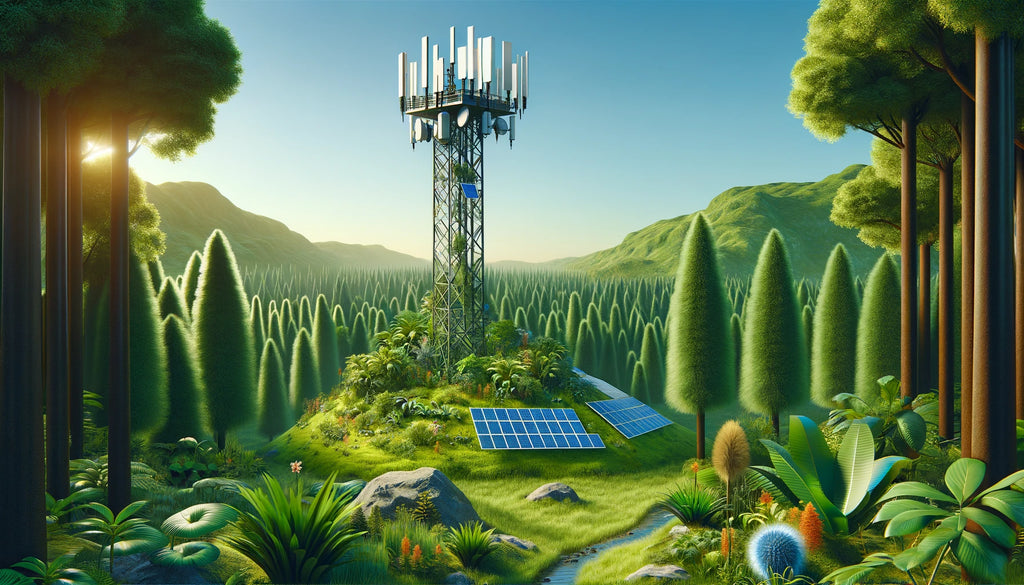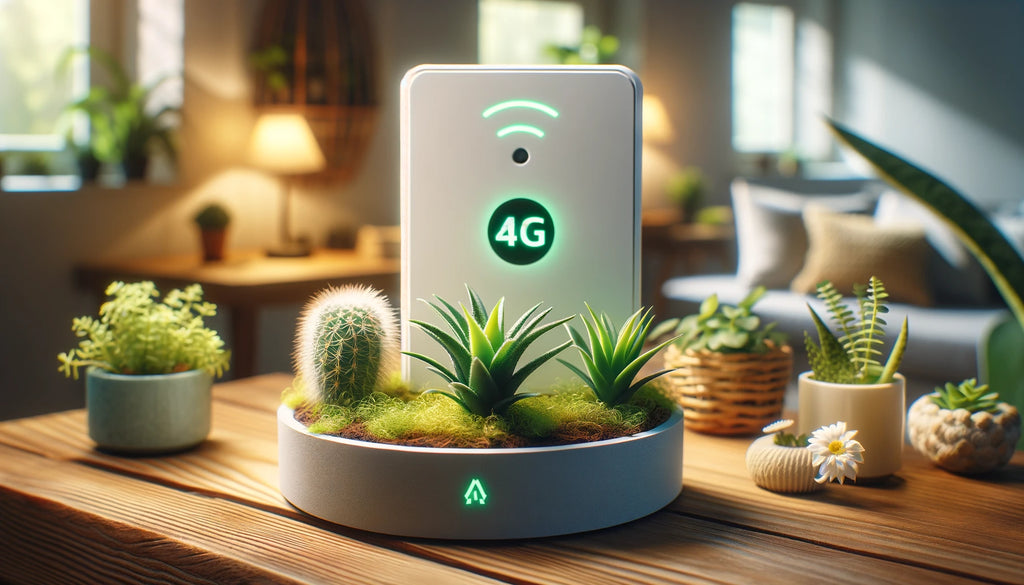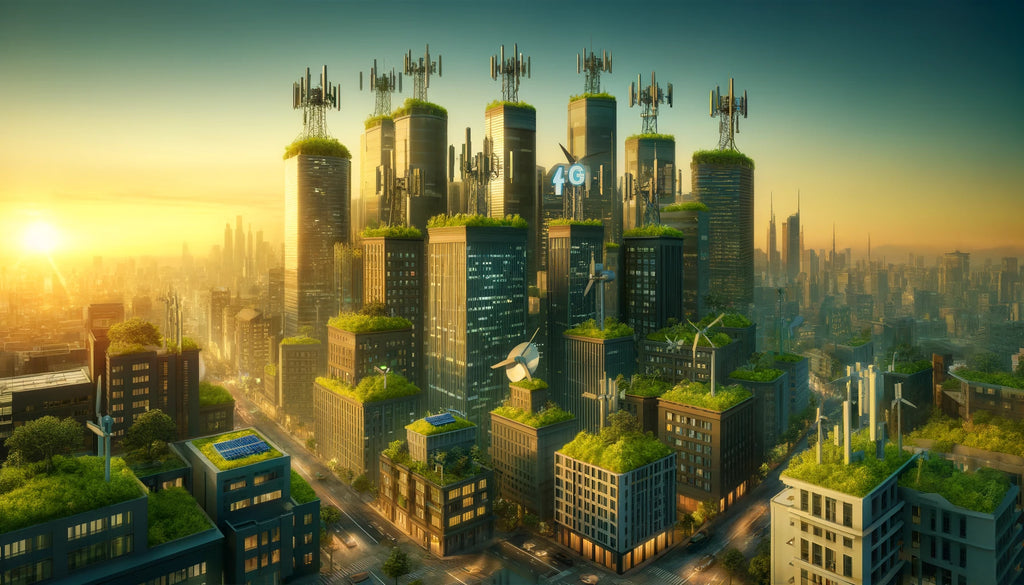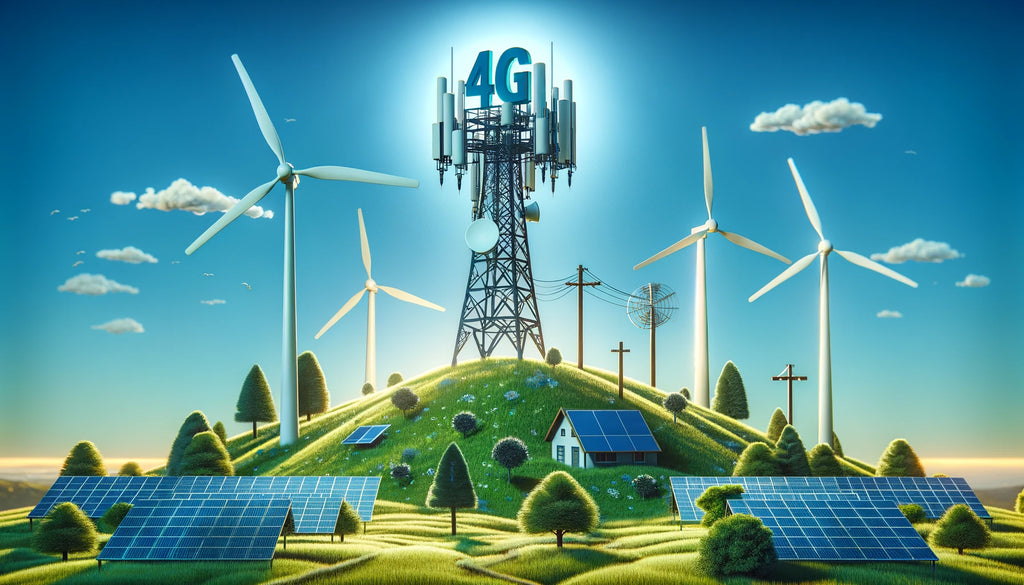4G has changed how we use the internet by making it faster and more reliable. But it's important to look at how using 4G at home affects the environment. This article talks about the good and bad sides of 4G, especially how it uses energy and how green it is compared to the usual internet services.
How 4G Saves Energy
4G is better than the old internet because it can handle more information and uses less energy. It sends data in a smart way that doesn't use as much power. Here's how 4G does a good job at this:
- Less Power for Each Bit of Data: 4G uses cool tech like MIMO (Multiple Input Multiple Output) and OFDM (Orthogonal Frequency Division Multiplexing), making it send data more efficiently. This means 4G needs less energy to send information, making it better for our planet.
- Smarter Network Design: When setting up 4G networks, saving energy is a big focus. The equipment can adjust how much power it uses depending on how busy the network is. This smart change stops energy from being wasted when not many people are online, which saves more energy.
- Moving to Wireless: With 4G being everywhere and dependable, more people are choosing wireless internet at home. Wireless setups use less energy than wired ones from the start. So, when more people go wireless, it cuts down on the energy used to make and set up all those wires.

| Technology | Description | Impact on Energy Efficiency |
|---|---|---|
| MIMO (Multiple Input Multiple Output) | Uses multiple antennas at both the transmitter and receiver to improve communication performance. | Enhances data speed and reduces energy per bit by improving signal quality. |
| OFDM (Orthogonal Frequency Division Multiplexing) | Splits a radio signal into multiple smaller sub-signals that are transmitted simultaneously at different frequencies to reduce interference. | Increases the efficiency of data transmission, allowing for lower power consumption. |
Making 4G Networks Better for the Planet
Lately, a lot of people are talking about how to make 4G networks less harmful to our world. Companies that run these networks and those that make the equipment are doing several things to make a difference. Here's what they're up to:
- Using Nature's Power: Lots of network companies are tapping into the power of the sun and wind to run their operations. This means they're not using as much oil and gas, which cuts down on pollution.
- Smarter Equipment: There's also a big push to use network gear that doesn't need as much electricity and lasts longer. This way, they don't have to keep making and throwing away so much stuff, which is better for the planet.
- Handling Old Gear Right: They’re making sure to recycle or safely throw away old network parts. This helps keep harmful chemicals out of the environment.
| Initiative | Description | Environmental Benefit |
|---|---|---|
| Renewable Energy Use | Implementing solar and wind power solutions for network operations. | Reduces carbon footprint and dependency on fossil fuels. |
| Energy-Efficient Equipment | Upgrading to devices that consume less power and have a longer operational life. | Lowers energy consumption and reduces electronic waste. |
| E-Waste Management | Establishing recycling programs for outdated or damaged network equipment. | Prevents hazardous materials from entering landfills and promotes resource recovery. |
Why 4G at Home Might Be Greener Than Regular Internet

When you look at the environmental effects of using 4G for home internet versus traditional internet, a few things stand out. 4G doesn't need as much stuff like cables and other hardware, which means not as many resources are used up or animals' homes messed up when it's set up. This also means less energy is used to make and install all that hardware.
What's more, 4G technology is pretty energy-efficient, especially when network companies focus on being friendlier to the environment. If we keep finding ways to make these networks use less energy and handle old equipment better, choosing 4G for home internet could be a smarter choice for the planet. But, it’s really important that everyone keeps working on making these improvements.
Comparing Green Effects
When we look at what's better for the Earth between 4G home internet and the usual broadband, 4G looks pretty good. It's not only smart in how it works but also doesn't need a lot of wires and stuff all over the place, making it a friendlier choice for our planet.
Unlike the old way of setting up internet that needs a lot of digging and laying cables, 4G doesn't bother the ground much and uses fewer resources to get started.
Also, because 4G is so advanced, it uses less power (per kilobyte of data), which means less pollution, showing it's a step in the right direction for keeping the Earth clean while we stay online.

Looking at Rules and Guidelines
What kind of effect 4G networks have on the environment largely depends on the rules and advice from people in charge, making sure the digital world doesn't hurt our planet too much.
Important steps include using clean energy for running these networks, making sure old electronics are handled right, and creating equipment that doesn’t need a lot of power.
These efforts are not just good for Earth, but they also show a way to make sure that as we build and grow our internet, we're thinking about the environment. As rules update and get better, the chance to make 4G home internet even greener and set the stage for new, Earth-friendly ways to stay connected gets even bigger.
| Regulation Focus | Description | Expected Outcome |
|---|---|---|
| Renewable Energy Adoption | Mandates or incentives for using renewable energy in network operations. | Reduces carbon emissions and reliance on non-renewable energy sources. |
| E-Waste Recycling | Guidelines for the proper recycling and disposal of outdated 4G equipment. | Minimizes hazardous waste in landfills and promotes the reuse of materials. |
| Energy-Efficient Standards | Standards for manufacturing energy-efficient network devices and equipment. | Decreases the overall energy consumption of 4G networks and extends equipment lifespan. |

Conclusion
Wrapping things up, the way 4G home internet affects our environment is complex. It has its ups and downs when it comes to being efficient and not harming the planet. As this tech gets better over time, it's really important for everyone involved to keep the environment in mind. We need to make sure that getting everyone online doesn't hurt the earth.
